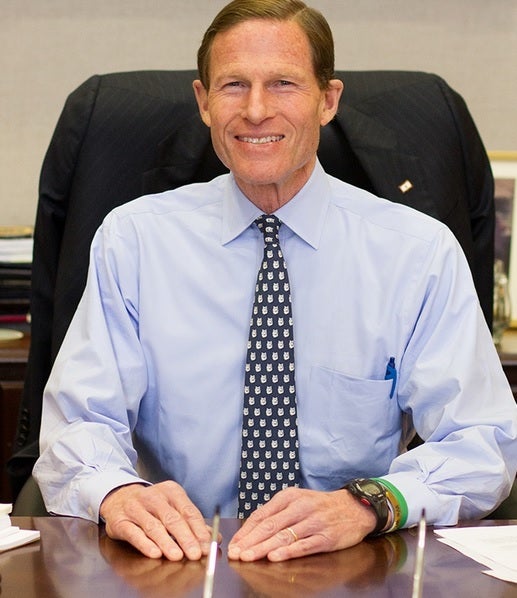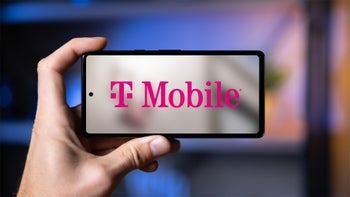Two U.S. Senators accuse TikTok of lying to Congress and demand answers

Back in March, TikTok CEO Shou Zi Chew spoke to members of the House Energy and Commerce Committee about the alleged storage of U.S TikTok. users' personal data by the app's parent company ByteDance. Last week, a letter written to the CEO by Senators Richard Blumenthal, Democrat of Connecticut, and Marsha Blackburn, Republican of Tennessee, accused TikTok officials of giving misleading and inaccurate answers to Congress and demanded the answers to a dozen questions before the end of this coming week.
In the letter dated June 6th, the lawmakers cite published material from The New York Times that claims that user data from American TikTok users, including driver's licenses and child sexual abuse materials, was shared at TikTok and its parent company ByteDance through an internal messaging platform named Lark.
The Senators accuse TikTok employees of giving them "misleading or inaccurate responses"
The Senators say in their letter, "We are disturbed by TikTok's pattern of misleading or inaccurate responses regarding serious matters related to users’ safety and national security, and request that TikTok correct and explain its previous, incorrect claims." The Times report says, "[the] profusion of user data on Lark alarmed some TikTok employees, especially since
ByteDance workers in China and elsewhere could easily see the material." The report also noted that data from the Lark platform was kept on China-based servers.
ByteDance workers in China and elsewhere could easily see the material." The report also noted that data from the Lark platform was kept on China-based servers.

Senator Richard Blumenthal, one of the two Senators who wrote to TikTok's CEO demanding answers
A story in Forbes published last month was mentioned in the letter written by the two Senators. That article accuses TikTok of storing the financial information of U.S. TikTok creators, including tax information and social security numbers, in China.
Senators Blumenthal and Blackburn point out that they have been told numerous times by TikTok employees and by its CEO that TikTok stores U.S. user data in Virginia and Singapore. Talking to CEO Chew, the pair write, "Nowhere in your response did you mention that TikTok stores user data in China, or that information about U.S. users— including sensitive information like photos and driver’s licenses or reports containing illegal materials like child sexual abuse materials — would be shared on Lark, and therefore accessible to ByteDance employees."
The Senators demand responses to these questions by June 16th
The letter includes 14 questions that the Senators want TikTok to answer by next Friday, June 16th:
Did TikTok notify CFIUS that it continued to store U.S. user data on servers in China, and if so, when?
For how long has the user data related to the TikTok Creator Fund referenced in the Forbes report been stored in China and why did TikTok store that data in China?
Detail the scope of the U.S. user information stored on servers in China related to the TikTok Creator Fund or any other programs. The Forbes report references "sensitive financial information, including social security numbers and tax IDs."
According to the New York Times report, U.S. TikTok user data shared on Lark was stored on servers in China as recently as late 2022. For how long was that user data being stored in China and is any Lark data from U.S. users still stored or retained on servers in China?
China’s National Intelligence Law requires organizations and citizens to "support, assist and cooperate with the state intelligence work." Can ByteDance or TikTok be compelled to share U.S. user data stored in China to Beijing?
Has TikTok taken any steps to investigate whether data related to the TikTok Creator Fund or any other U.S. user data stored in China or accessible to ByteDance employees was shared with officials of the Chinese Communist Party or the Chinese government?
Has TikTok and/or ByteDance deleted the U.S. user data referenced in the New York Times and Forbes reports from its servers in China? Do you intend to maintain those as backup to the cloud infrastructure, as well?
Are TikTok employees still using Lark for internal messaging and management functions? Is ByteDance still involved in the development and maintenance of this data sharing tool?
What oversight, involvement, or role does TikTok have with other products offered by ByteDance to users in the United States, such as Lemon8 or CapCut?
Recently the state of Montana passed legislation banning TikTok. The law will go into effect next January.
Follow us on Google News














Things that are NOT allowed:
To help keep our community safe and free from spam, we apply temporary limits to newly created accounts: